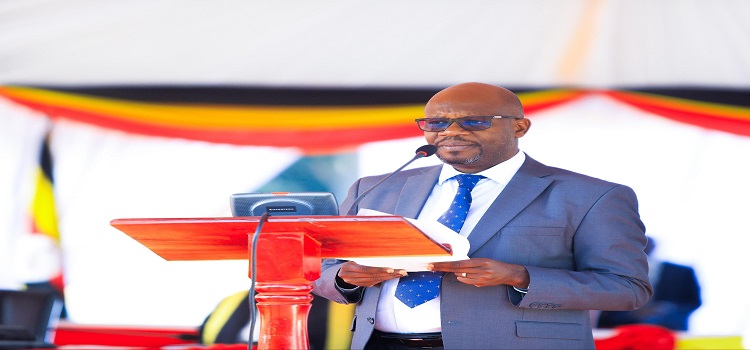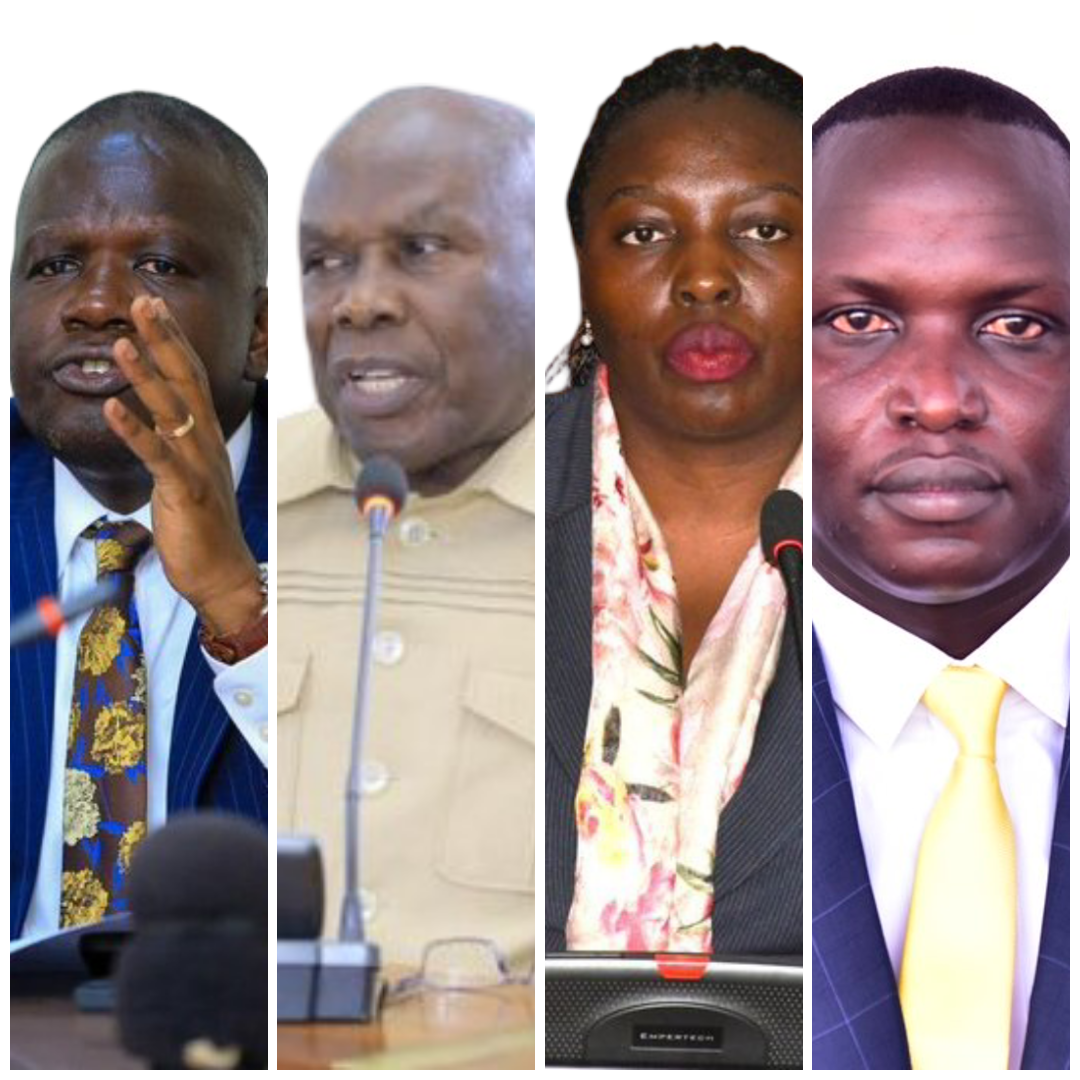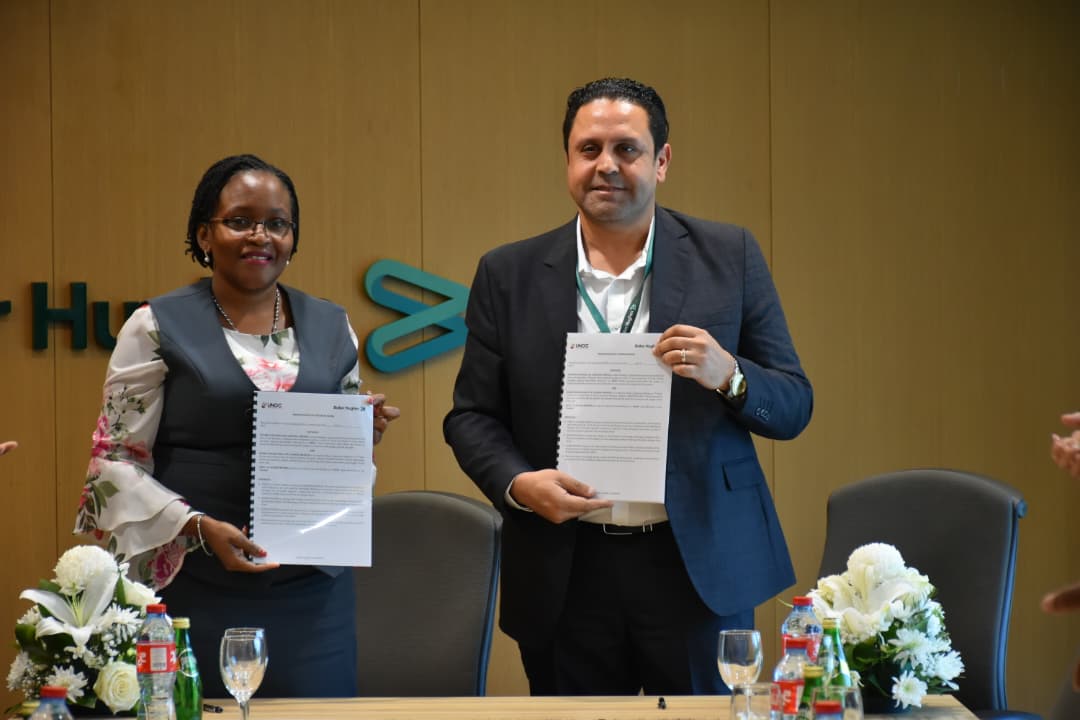Gov’t blocks election for the leader of opposition
The State's position was revealed by Deputy Attorney General, Jackson Kafuuzi, in his written submission to the Legal & Parliamentary Affairs Committee, to provide the Government's views on the Administration of Parliament Amendment Bill, 2024 that was tabled by Richard Lumu (Mityana South).

Gov’t rejected the proposal to hold elections for the Leader of Opposition, arguing that the proposals are matters of policy not legal, but instead, government wants the Administration of Parliament Act to be amended to require the attendance of either the Minister of Finance or Prime Minister in Parliamentary Commission meetings when key decisions are to be made.
The State’s position was revealed by Deputy Attorney General, Jackson Kafuuzi, in his written submission to the Legal & Parliamentary Affairs Committee, to provide the Government’s views on the Administration of Parliament Amendment Bill, 2024 that was tabled by Richard Lumu (Mityana South).
“Allowing other Opposition parties to elect the Leader of the Opposition would be a contradiction of the mandate given by the people for the Leader of the Opposition to be elected from another party. We observe that the selection of the Leader of Opposition is determined by the internal procedures of the opposition party which is more of a policy rather than a legal nature,” Kafuuzi noted.
Kafuuzi further highlighted that article 1 of the Constitution gives all power to the people and all authority in the State emanates from the people of Uganda who exercise it through regular free and fair elections.
He noted that “In exercising this mandate, the people elected their Members of Parliament who are ranked with the largest party being the Ruling Party and the second party, being the Party with the greatest numerical strength in Opposition to the Government in Parliament, drawn from the will of the people through free and fair elections,”
Government also rejected Lumu’s proposal to have the Leader of Opposition removed from the office by a resolution of the members of the Opposition parties in Parliament, with Kafuuzi noting that the proposed amendment interferes with the mandate of the party in Opposition to Government with the greatest numerical strength in Parliament that has been elected by the people as given to them by the electorate.
“The process of removal by resolution of the members of the Opposition parties in Parliament is contrary to the will of the people who exercise their power through regular, free and fair elections. The Leader of Opposition is appointed by election and should not be removed by resolution of Parliament,” argued Kafuuzi.
Still in the written submission, Lumu’s proposal to introduce another slot on the Parliamentary Commission for the smaller Opposition Parties was rejected by Government, with the Deputy Attorney General noting that introducing a second Opposition member among the four Commissioners out of the nine members of the Commission would distort the principle of numerical strength that lies with the largest party or the Government.
“In addition, the proposed amendment imposes a charge on the Consolidated Fund which is contrary to Article 93(a) (ii) of the Constitution,” noted Kafuuzi.
“When the (Parliamentary) Commission sits and makes decisions. The Commission may make decisions that may require parliamentary approval in addition to having financial implications. It is prudent for the quorum at any meeting of the Commission to be constituted with the membership of the executive, in particular the Leader of Government Business or the Ministry of Finance, in order not to offend article 93 of the Constitution,” concluded Kafuuzi.
The government firmly rejected the proposal to elect the Leader of the Opposition (LoP) through a vote among opposition parties, arguing it contradicts the existing policy framework and the electorate’s mandate.
This stance aims to ensure alignment with the Constitution’s provisions and maintain the current structure based on numerical strength, preserving the ruling party’s control over key parliamentary processes.







